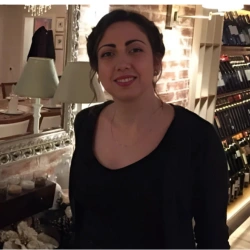
Olta Qurku
Regional Gjirokaster Hospital, AlbaniaPresentation Title:
Arginine vasopressin resistance
Abstract
Johann Peter Frank of the University of Pavia was the first to describe a rare disease of kidney characterized by “long continued abnormally increased secretion of non-saccharine urine” and introduced the term “diabetes insipidus. [1] Later in 1901 Magnus and Shaffer attribute this condition to the posterior pituitary glandule. [2] It was Vigneaud who synthesized AVP hormone for the first time. [3] In the human body, AVP is synthesized as a part of 164 amino-acid precursor protein together with neurophysin-2 protein and copeptin (a glycosylated peptide with a leucine core segment), in magnocellular neurons located in two discrete areas of the hypothalamus, the supraoptic and paraventricular nuclease. [4] Then, AVP is reserved in the pituitary gland waiting to be released in circulation due to specific signals. [5] After the release from pituitary gland, AVP interacts with three types of G-protein coupled receptors (V-receptors) in different cells. The result of this interaction is the phosphorylation of AQP2 and translocation of it from intracellular storage vesicles to the apical plasma membrane of the principal cells. [6] So, nephrogenic diabetes insipidus, now known as arginine vasopressin resistance, is characterized by a decrease in urinary concentration ability that results from resistance to the action of AVP hormone. There are two forms of AVP-R, respectively hereditary forms caused by mutation of AVP receptor gene and mutations of AQP2 gene and the acquired forms caused mostly by medications. [7][8] Treatment of Lithium-induced AVP-R with HTZ has been shown to be associated with an increased risk of hyperuricemia due to inhibition of urate secretion at the level of OAT1 and OAT3 and competition with urate at the level of NPT4. [9][10]
Biography
Olta Qurku, a nephrologist at the Regional Hospital of Gjirokastra since 2018, holds a Postdoctoral Study in Nephrology from the University of Medicine, Tirana, and is completing an online Glomerular Disease Fellowship with Glomcon/ASN. She trained in Renal Biopsy and Pathology at the Technical University of Munich and completed a Nephrology Fellowship in Tirana. She has delivered numerous national and international presentations and publications on chronic kidney disease, transplantation, and rare renal disorders. Fluent in Albanian, with skills in Italian and German, she is committed to advancing kidney health through clinical practice, research, education, and community healthcare initiatives.

